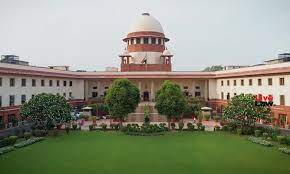Appeals arise out of service tax demands on the basis of four Show Cause Notices. (Para 1)
CESTAT observed that it is not borne out from the impugned order of the Commissioner how service tax liability has been computed. CESTAT further observed that if the assessee has purchased software from third parties and sold the same on payment of VAT and supplied hardware on payment of VAT, the same would not be liable to service tax. It was further held that the liability to service tax would arise only in respect of the software which the assessee has developed as per customers’ specifications and supplied to their customers. (Para 2)
The Commissioner held that the services rendered by the assessee from 10th April 2004 up to 15th May 2008 in relation to software need to be classified under the category of “Intellectual Property Service” defined under Section 65 (55b) of the Finance Act. It was further held that from 16th May 2008 onwards, in relation to the software, the classification of service rendered should be under the category of “Information Technology Software” defined under Section 65 (53a) of the Finance Act. Thirdly, it was held that the value of the computer hardware items consumed for providing the services is required to be included in the valuation of the respective services in terms of Section 67 of the Finance Act. Consequential orders regarding payment of interest and penalty were passed by the Commissioner. (Para 3)
CESTAT held that the services subject matter of dispute were classifiable under the category of “Information Technology Software” with effect from 16th May 2008 and for the earlier period up to 15th May 2008, the same services were classifiable under the category of “Intellectual Property Service”. The Tribunal held that the show cause notice dated 19th October 2019 covering the period up to 16th May 2008 was not justified. However, the Tribunal, for the period on and after 16th May 2008 passed a limited order of remand. (Para 4)
In fact, the management, maintenance and repair services of computer hardware as well as software under the annual maintenance contract was covered by the category of “Management, Maintenance or Repair” services which was defined under Section 65(64) of the Finance Act. Thus, the classification mentioned in the first show cause notice was completely erroneous. Therefore, CESTAT was right in holding that the first show cause was illegal. Elementary principles of natural justice required that the adjudication on the basis of show cause notice should be made only on the basis of classification stated in the show cause notice. Assessee cannot be subjected to a penalty on the basis of a show cause notice containing a completely erroneous category of service. Therefore, the demand made on the basis of the first show cause notice was illegal. Therefore, we find that there is no merit in the appeal preferred by Revenue. (Para 10)
The issue to be considered was whether in respect of the particular transactions, service tax was payable under the classification mentioned in the show cause notices. After having perused the findings of CESTAT, we find that the findings rendered by the Tribunal call for no interference. The findings are based on careful consideration of the factual and legal aspects. (Para 11)
We cannot find fault with the reasoning adopted by CESTAT. However, in the proceedings pursuant to remand, it will be open for the assessee to show that an exemption was available under subsection (2) of Section 26 of the SEZ Act. (Para 14)
In paragraph 10.17, it was held that octroi charges are in the nature of levy for transportation of goods. Therefore, octroi charges cannot be a part of the value of the taxable services. However, a remand was ordered to enable the assessee to produce evidence regarding the amounts paid towards octroi charges. (Para 15)
SUPREME COURT OF INDIA
2023 STPL(Web) 176 SC
[2023 INSC 711]
Commissioner Of Service Tax, Mumbai II Vs. M/S 3i Infotech Ltd.
Civil Appeal No. 4007 of 2019 with Civil Appeal No.7155 of 2019-Decided on 14-8-2023
https://stpllaw.in/wp-content/uploads/2023/08/2023-STPLWeb-176-SC.pdf







